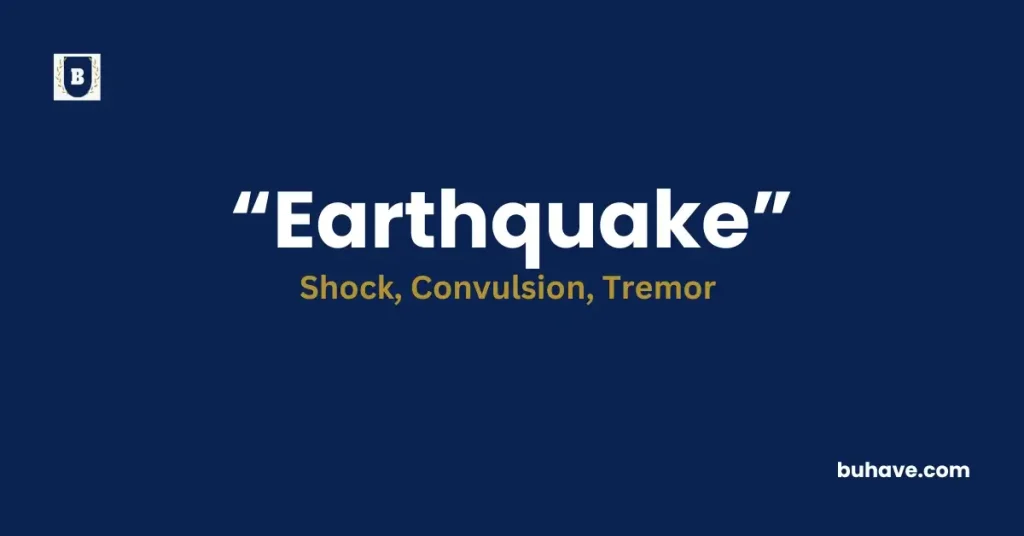The word ‘Earthquake’ (Noun) refers to a sudden shaking of the Earth’s surface caused by underground movement, typically along faults or by volcanic activity. In this guide, you’ll learn the full definition, synonyms, antonyms, etymology, and real-life examples of how to use ‘Earthquake’ correctly in sentences.
Earthquake Explained in Depth
A complete and detailed guide to the word ‘Earthquake’ including meaning, definition, examples, etymology, synonyms, and antonyms.
Meanings of Earthquake
Earthquake means a sudden, violent shaking of the ground, often causing destruction, that results from movements within the Earth’s crust or volcanic activity. Earthquakes can vary in size and severity from barely noticeable tremors to massive, devastating events that destroy buildings and change landscapes.
They often strike without warning, making them one of nature’s most powerful and unpredictable phenomena.
Definition
Earthquake is a noun that refers to a sudden and often violent shaking of the ground, caused by movements within the Earth’s crust or volcanic action.
It can lead to significant damage and sometimes loss of life, depending on its magnitude and location.
Etymology
The word “earthquake” comes from Middle English, combining “earth” (meaning the ground or the land) with “quake” (meaning to shake or tremble). This straightforward term directly describes what happens during this natural event: the earth shakes or quakes, often with dramatic consequences. The root word “quake” itself comes from Old English “cwacian,” meaning to tremble or shake.
Example Sentences
- The 7.8 magnitude earthquake destroyed hundreds of buildings in the city.
- After the earthquake, emergency crews worked tirelessly to rescue survivors from the rubble.
- She felt a small earthquake while sitting in her living room, though it didn’t cause any damage.
Earthquake Synonyms
- Temblor
- Seismic event
- Tremor
- Aftershock
- Shockwave
Earthquake Antonyms
- Stability
- Calm
- Stillness
- Tranquility
- Peace
FAQs about Earthquake
Here are some frequently asked questions (FAQs) about the word “Earthquake”
1. What causes an earthquake?
Earthquakes are caused by the sudden release of energy in the Earth’s crust, usually due to the movement of tectonic plates or volcanic activity. When stress builds up and exceeds the strength of rocks, they break and slip, releasing energy as seismic waves that shake the ground.
2. How are earthquakes measured?
Earthquakes are measured using instruments called seismographs. The most common scale is the Richter scale (magnitude), but scientists also use the Moment Magnitude Scale (Mw) to more accurately measure the size and energy released by large earthquakes.
3. Can earthquakes be predicted?
Unfortunately, no reliable method currently exists to predict exactly when and where an earthquake will strike. Scientists can identify areas where earthquakes are more likely, but precise predictions remain beyond current technology.
4. What should you do during an earthquake?
Drop, Cover, and Hold On: Get down to the ground, take cover under a sturdy table or piece of furniture, and hold on until the shaking stops. Stay away from windows, glass, and objects that could fall.

















